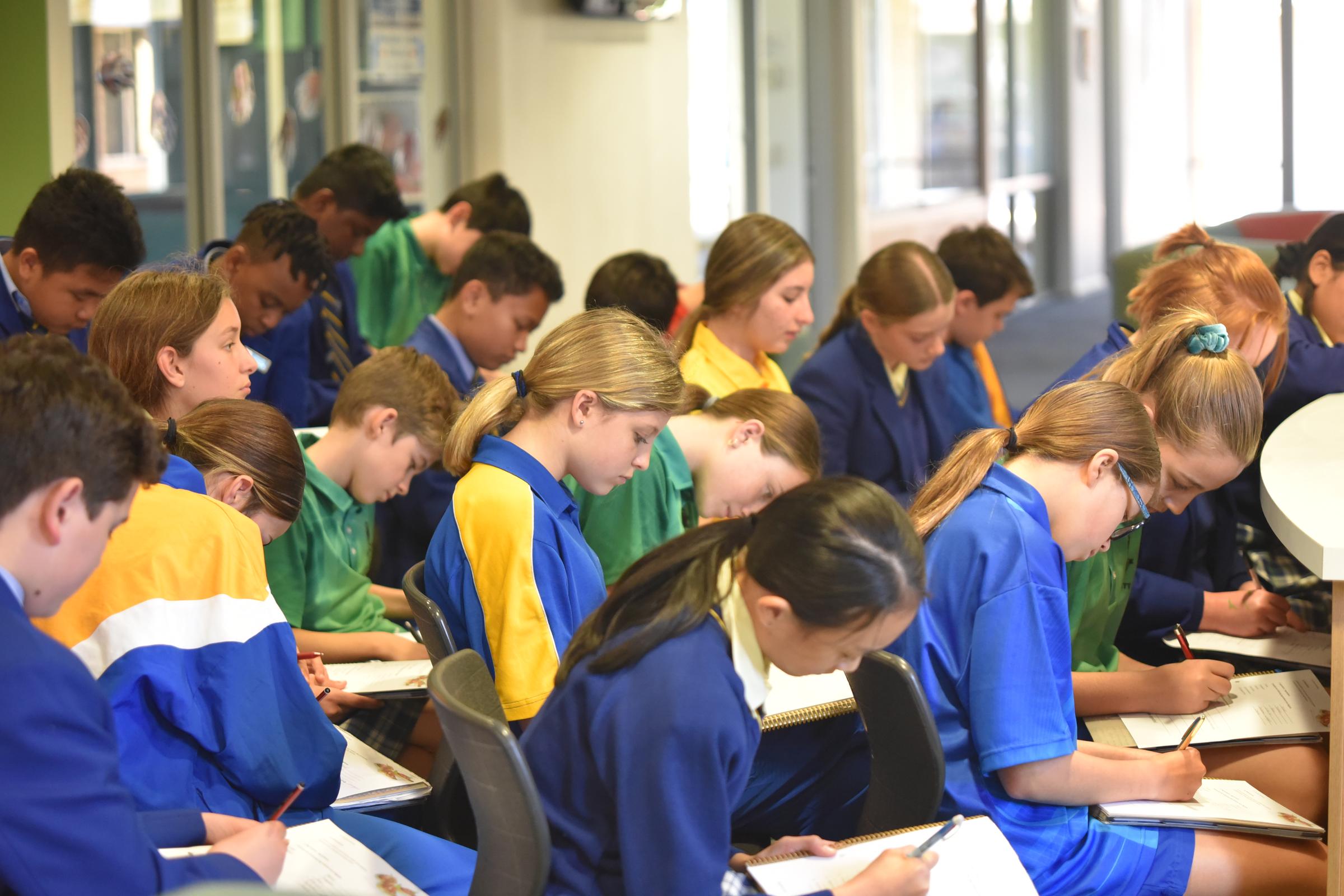Dean of Studies
Year 11 exam workshop and new research

Dean of Studies
Year 11 exam workshop and new research
Having a growth mindset makes it easier to develop new interests[1] (according to O’Keefe et.al.[2] 2018), as some people hold the view that interests are inherent in a person, and are simply waiting to be awakened or found — referred as a fixed mindset of interest. Other people lean towards the view that interests can be developed and coupled with commitment and investment, these can grow over time —a growth mindset of interest.
“Technology alone is not enough—it’s technology married with liberal arts, married with the humanities, that yields us the results that make our heart sing.” — Steve Jobs
“Technology inspires art, and art challenges the technology.” – John Lasseter, Chief Creative Officer at Pixar.
If interests are viewed as being inherent and fixed, then exploring other interests may not seem worthwhile, however if interests can be developed, these may in fact develop further interests in new areas. For example, trying a different elective subject or joining in with a different co-curricular activity or club may develop previously unknown interests, and expose students to new challenges, experiences and learning. Many students upon returning to the College well after graduation, have reflected on how this has helped them to refine their goals and pathways, combining both the completion of their academic requirements and finding motivation to combine this with their passions and interests. A growth mindset may also expand people’s interest repertoire, which perhaps can be helpful for making connections across areas and generating novel ideas.
Tim Brown, CEO and president of the design consulting firm IDEO, has emphasised the value of the “T-shaped person.” The vertical line of the T represents one’s depth of expertise in a field, whereas the horizontal line represents one’s diverse interests, and ability to work and collaborate across areas. Like those with a stronger growth mindset, T-shaped people are experts but do not necessarily have a singular focus, and look for inspiration from multiple areas.
In another study, the researchers examined how mindsets relate to people’s expectations around motivation once they discover a passion. As an example, they note that people with more of a fixed mindset were more likely to say that, “once you find your ‘passion’, it should come with boundless motivation, making its pursuit relatively easy.”
By way of a contrast, those with more of a growth mindset were more likely to believe that, “pursuing that passion would involve some setbacks and difficulties.”
Finding the motivation to study and complete academic work that may not directly align with passions and interests is a challenge for many high school students. There is a tension between what is required and what is pursued, and a high degree of grit and resilience may be needed to combine both of these. Developing this growth mindset is reinforced by the messages we get from others including managers, parents, and teachers. Encouraging students to stick with a new interest even as it becomes challenging normalises the experience of difficulty in our learning and development.
(1) Having a Growth Mindset Makes it Easier to Develop New Interests (Paula A.O'Keefe, Carol Dweci and Greg Walton. September 2018: https://hbr.org/2018/09/having-a-growth-mindset-makes-it-easier-to-develop-new-interests?ab=at_art_art_1x1
[1] Paul A. O’Keefe, Ph.D. Assistant Professor of Psychology at Yale-NUS College; Carol Dweck, Professor of Psychology at Stanford University; Greg Walton, Associate Professor of Psychology at Stanford University.
Finding ways to connect the required learning to the passions and interests can be phrased in terms such as , “Develop your passions” rather than “Find your passion”, or more broadly, build your foundation in school now, in order to expand the options available beyond school.


All Year 11 ATAR students are invited to attend a school holiday exam and study seminar. The focus of the seminar will be on practical advice and strategies to refine your study and exam strategies for Term 4, and in preparation for the Semester Two examinations in November. Students are welcome to attend from 9am for refreshments, with the seminar commencing at 9:30am. Student may dress casually and it is recommended that they bring a fully charged laptop.
Date: Thursday 30 September, 9am – 12pm
Venue: Cappenburg Building
Bookings essential via the following link: trybooking.com/BTLEW
The OLNA (Round 2) will take place in Term Three on the following dates:
Students will have received a letter indicating if they are required to attend the respective assessments in either the BP Forum or Business Centre.
Mr R Dowling
(Dean of Studies)